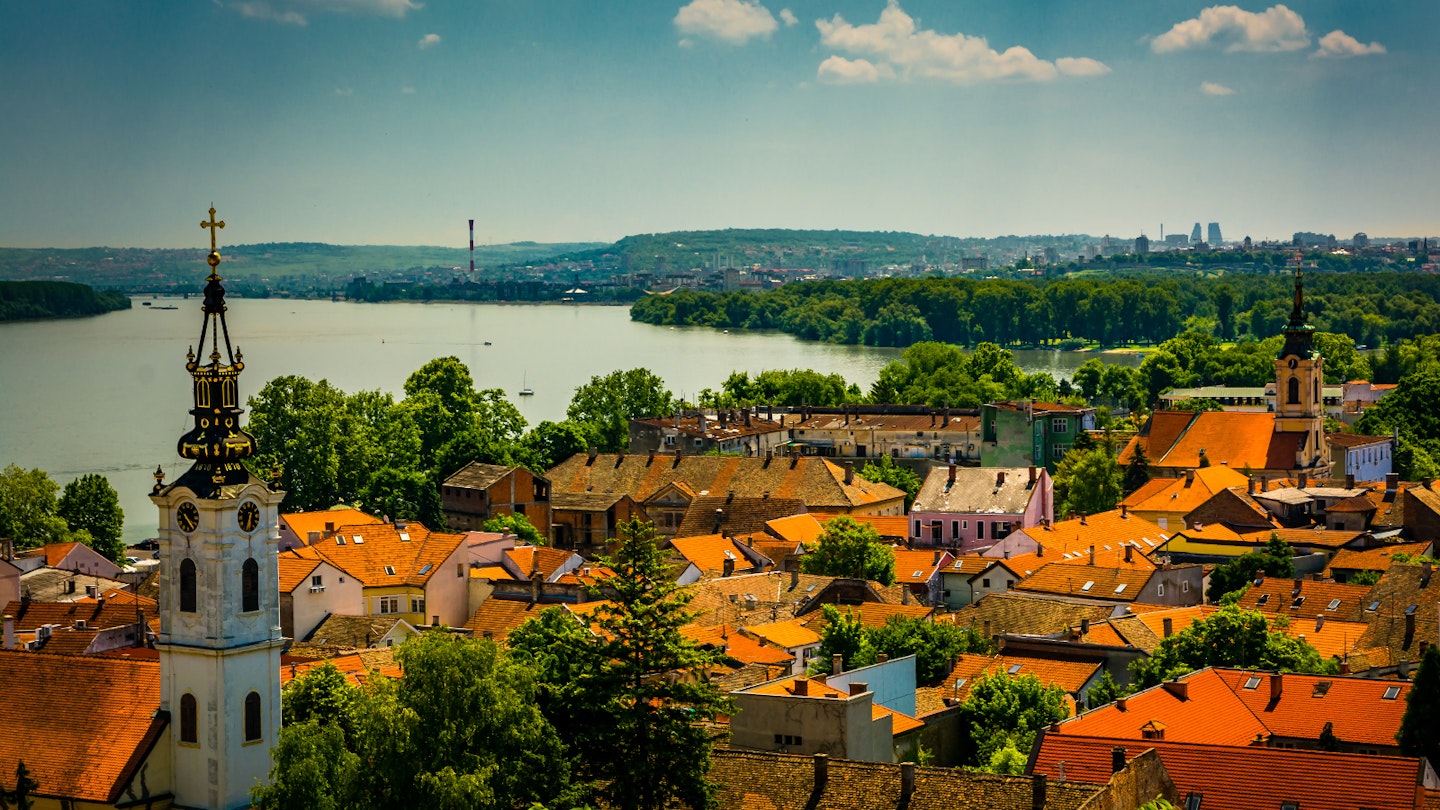Discover Zemun: A Charming Neighborhood in Belgrade
No visit to Belgrade is complete without at least half a day spent in Zemun. This picturesque neighborhood on the Danube’s right bank was formerly a separate town, located across the river from central Belgrade.
Although formally part of the Serbian capital since 1934, Zemun still retains its distinct identity and a small-town feel. This is not surprising given that between 1739 and 1918, Zemun was part of the Habsburg Empire, while Belgrade transitioned from a border city in the Ottoman Empire to the capital of the newly independent Serbian kingdom.

The most notable reminder of Zemun’s time as an Austro-Hungarian border town is its iconic sight—the Janos Hunyadi tower, better known as Gardoš. The brick-and-stone tower rises from the middle of the remains of a medieval square citadel, offering some of the most beautiful views of Belgrade across the Danube, framed by red-tiled rooftops and ornate church steeples. It’s named after a Hungarian hero who defended Belgrade from an Ottoman siege in 1456, and was built in 1896 to commemorate the 1000th anniversary of Hungarian settlement in central Europe.
Adjacent to the tower lies Zemun’s cemetery, adorned with elaborate tombs that reflect its multicultural past. Among many notable turn-of-the-20th-century memorials and contemporary hyper-realistic sculptures, you will find the graves of Rebecca and Simon Herzl, the grandparents of Theodore Herzl, the founder of modern Zionism, who was reportedly inspired by Rabbi Yehuda Alkalai from Zemun.

Despite losing many Jewish and German residents during and after WWII, Zemun’s lower town retains traces of its cultural diversity, visible in its many religious places of worship. The 18th-century baroque Nikolajevska Church—Belgrade’s oldest and Zemun’s most beautiful—is adorned with faded monochrome frescoes and ancient relics. Nearby, the only functioning Franciscan monastery in Belgrade, dedicated to John the Baptist, complements the former Ashkenazi synagogue, now converted into a restaurant.
Architecture enthusiasts can admire several monumental modernist buildings constructed in Zemun between the two world wars, including the Lutheran Evangelical rotunda and the art-deco Air Force Command building. The latter was bombed during the 1999 NATO airstrikes but remains an elegant structure featuring a striking art-deco statue of Icarus. Also, check out the faded Hotel Jugoslavija, once a lavish representation of Yugoslav luxury, having hosted notable guests like Queen Elizabeth II and Neil Armstrong.

Apart from its stunning architecture, Zemun’s defining feature is its small-town atmosphere, best experienced at the vibrant market located between Veliki trg and Masarikov trg. Known for being one of the best in Belgrade, Zemun market offers a wide range of local dairy and meat products. Visitors are often invited to sample fresh produce. Additionally, visitors can indulge in girice (fried small fish) from local fishmongers or savor one of Belgrade’s best bureks (cheese or meat pies) at Petrović bakery on Veliki trg.
Zemun’s culinary scene attracts many locals who flock to the restaurants lining the Danube promenade for river- fish dishes and the popular spicy riblja čorba (fish broth). Choices range from budget-friendly joints like Radecki to more upscale establishments such as Paša, Galeb, and Šaran. For those preferring traditional grills, Naja offers excellent options, while Toro serves mouth-watering steaks and cozy Ćiribu Ćiriba focuses on local home-cooked dishes.

In addition to its delightful food, Zemun’s restaurants are known for live music and a lively atmosphere in the evenings. Over the past few decades, Reka has gained almost mythical status, making it a coveted dining destination, especially on weekends. If you prefer a casual spot to enjoy drinks with a view of the Danube, check out Kaš, a local craft brewery set in a former slaughterhouse, or pay a visit to Crna Ovca pub, nestled just below Gardoš, also known for its craft beers.
On warm summer days, visitors can take a refreshing dip in the Danube. During July and August, a pontoon bridge connects Zemun with the Great War Island, where you can relax on a beach or stroll around the protected nature reserve. Alternatively, explore stand-up paddleboarding at Daska i Veslo beach bar near Hotel Jugoslavija, enjoying picturesque views of Zemun as the sun sets behind Gardoš tower.




